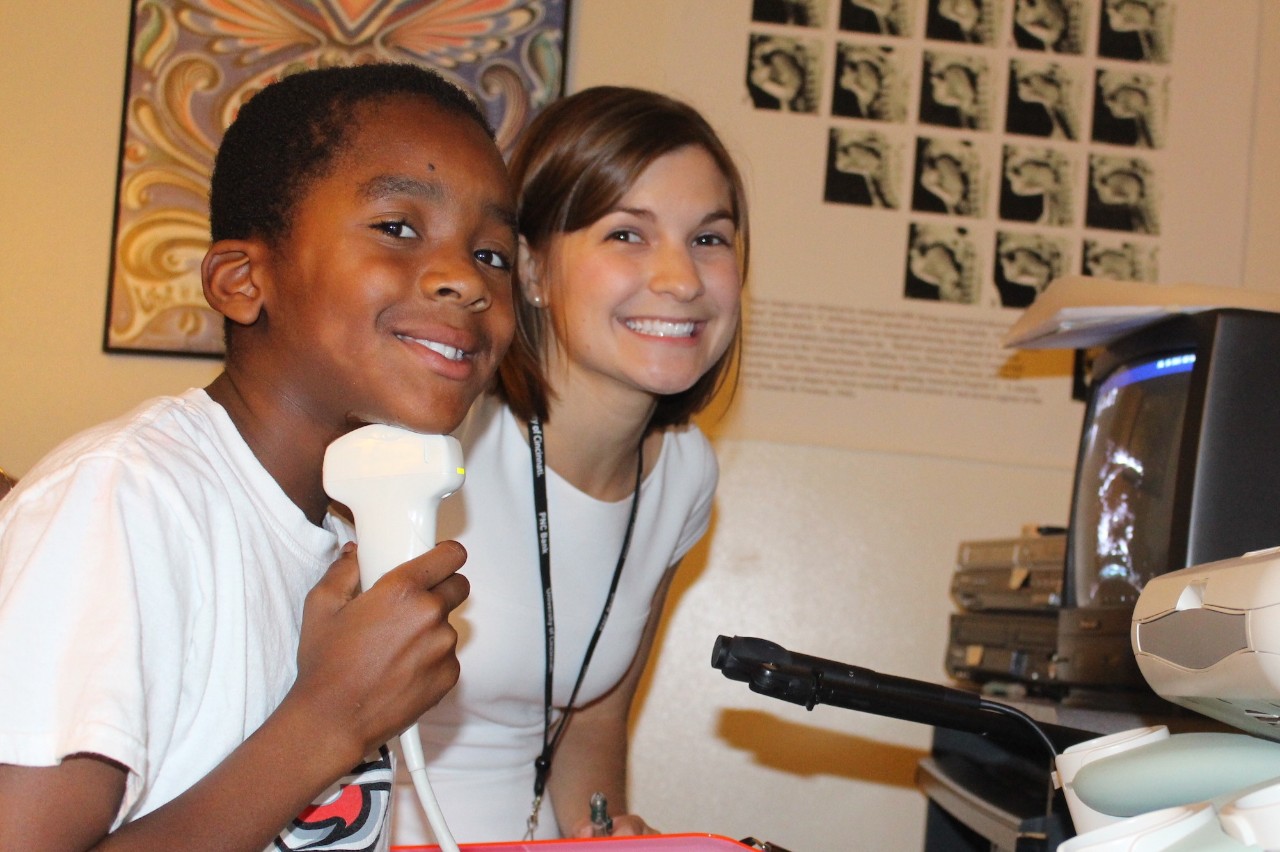
UC grad uses GIS mapping software to reduce health care inequities
Karneyium Health uses GIS software and AI to benefit underserved communities
Kelvin Brown is on a mission to transform accessibility in American health care — a vital endeavor given that significant disparities in health care outcomes exist, affecting certain ethnic backgrounds and residents of rural regions.
This challenge is precisely why Brown founded Karneyium Health. The startup, which combines artificial intelligence (AI) with geographic information systems (GIS) mapping software, reveals which communities lack adequate health care. Then, medical providers can address inequities by performing additional clinical trials in the regions Karneyium identifies as “in need.”
Kick-starting Karneyium
Brown has long been passionate about the intersection of health care, innovation and equity. “There are ethnic and socioeconomic inequities in care, quality of care, health insurance coverage and access,” Brown said matter-of-factly. And that reality bothers him.

Kelvin Brown. Photo/Kelvin Brown
Business acumen, however, came a bit further down the line. Brown learned how to effectively start and run a company while earning his MBA at the University of Cincinnati’s Carl H. Lindner College of Business. His learning didn’t end there, however.
Brown decided that the quickest way to scale Karneyium was to enter the Venture Lab program at UC’s 1819 Innovation Hub. This startup pre-accelerator helps entrepreneurs discover the ins and outs of running businesses and marketing products, and it served Karneyium well.
“The Venture Lab pushed us to focus on the startup and the direction we wanted to go,” Brown said. “They also connected us to a suite of seasoned and battle-tested entrepreneurs that helped guide us past mistakes early startups make.”
Brown next turned to Main Street Ventures, an investment firm based in UC’s 1819 Innovation Hub, for seed funding. Armed with the expertise to successfully scale Karneyium and the necessary financial backing, it was time to make a meaningful impact on society — exactly what Brown set out to do.
Embracing health care equity
Karneyium isn’t just a business idea for Brown; it’s a passion project. His love for technology and innovation is one part but a desire for equitable health outcomes plays an equally sizable role.
Brown’s startup intends to use GIS software to help health care providers target underserved regions for new clinical trials. This approach makes medical research more inclusive, faster and more reliable for those primarily overlooked today.
Karneyium's purpose is to rethink how clinical trials are operated and where they are executed.
Kelvin Brown Founder, Karneyium Health
“Karneyium’s purpose,” according to Brown, “is to rethink how clinical trials are operated and where they are executed, ultimately fostering more targeted, streamlined and inclusive trials.”
GIS software, used to analyze and categorize geographical data, is just a single piece of how Karneyium works. Brown also plans to use AI and real-world health data to recommend areas of emphasis for clinical trials. His overall goal: harness the power of innovation to provide actual benefits for overlooked individuals in American society.
What’s the big deal?
It’s easy to assume that health care in the United States is adequate and equitable for most groups. However, the harsh reality is that health outcomes remain divergent across different ethnic groups and regions. Black and Native American communities, in particular, experience profound health care inequities, as do those living in remote areas.
There’s work to do in Greater Cincinnati as well. As of 2020, Ohio and every neighboring state had a shorter life expectancy than the national average of 77 years. Brown saw the massive issue facing American residents today and decided it was time to do something about it.

Karneyium logo. Photo/Karneyium Health
Kate Harmon, assistant vice president of UC’s Office of Innovation, is excited by the potential of Karneyium’s impact on society. “Kelvin’s identification of a real societal problem and proposed solution offers much-needed critical parity to our health care system,” Harmon said.
Karneyium’s inspiration is rooted in Brown’s passion for equitability, love for health care and educational experiences as a Bearcat. Fanning the flames of these passions was UC’s Venture Lab, where Brown learned how to take his vision and turn it into something tangible.
Brown is excited to see the skills he learned in graduate school and at the 1819 Innovation Hub put into practice. “If we can optimize clinical trials and increase their inclusivity,” he said, “then we can bring lifesaving therapeutics to market faster and ensure the results of these trials are applicable to all ethnicities.”
Featured image at top: A student and child at a health clinic. Photo/UC Marketing and Communications
Become a Bearcat
Have aspirations to start your own company one day? Whether you’re a first-generation student or from a family of Bearcats, UC is proud to support you at every step along your journey. We want to make sure you succeed — and feel right at home. Apply today.
Related Stories
How will AI change the workforce?
February 25, 2026
UC Lindner College of Business Assistant Professor Jeffrey Shaffer shares his expertise with WVXU's Cincinnati Edition on how artificial intelligence is changing the employment landscape.
New study links gut makeup to celiac disease development
February 25, 2026
Specific genetic architecture in the gut microbial ecosystem can shape microbial composition in ways that are potentially relevant to the pathogenesis of celiac disease, according to a study published this month in Nature Genetics.
Companies see up to 700% return on political investments
February 25, 2026
Accounting professor Adam Olson recently published a study in the journal of Accounting, Organizations and Society called, “The effect of political connections on COVID-19 stimulus.” Using the COVID-19 stimulus checks as reference, his team looked at how much benefit companies got if they donated to certain PACs. This dataset was a new opportunity to measure direct impact, as usually benefits from donations take the form of tax breaks or new laws down the road, not a direct deposit of cash.
